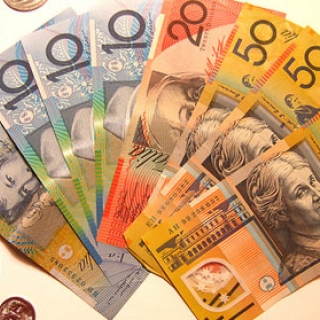


AUD/USD retreated from a five-month high of 0.6493 hit on Monday, dropping to around 0.6450 during the Asian session on Tuesday (06/05). The decline came as the US Dollar (USD) strengthened ahead of the Federal Reserve's (Fed) upcoming monetary policy decision on Wednesday.
While the Fed is widely expected to keep interest rates on hold, investors' focus remains on Chairman Jerome Powell's remarks, especially amid uncertainty over tariffs and growing pressure from President Donald Trump to cut rates.
Adding to the mix, Treasury Secretary Scott Bessent said on Monday that the US was "very close to some kind of deal," echoing Trump's comments over the weekend that suggested a trade agreement could be finalized soon. Trump confirmed negotiations were underway but ruled out talks with Chinese President Xi Jinping this week. Meanwhile, China's Commerce Ministry said last Friday that it was reviewing a US proposal to restart trade talks.
On the data front, the US ISM Services PMI rose to 51.6 in April, beating expectations of 50.6 and improving from 50.8 in March. The New Orders Index rose to 52.3 (from 50.4), while the Services Employment Index improved to 49 (from 46.2).
The AUD (Australia) was supported after Australian Prime Minister Anthony Albanese secured a second three-year term in the 2025 Federal Election, marking a significant improvement on Saturday's result. Albanese promised a "disciplined" government focused on cost-of-living relief, renewable energy, tax cuts, housing and healthcare.
The Westpac CEO noted that the "worst is over" in terms of consumer and business pressures, with demand for M&A financing stronger than expected. The bank expects a 25bps interest rate cut by the Reserve Bank of Australia (RBA) at its May 19–20 meeting.
Meanwhile, National Australia Bank (NAB) has raised its year-end AUD/USD forecast to 0.70, citing continued weakness in the USD market. NAB expects the pair to remain around 0.65 until mid-year, and gradually rise towards 0.67 by December. The bank attributes the outlook to the shift in interest rate differentials and anticipates the RBA to cut rates by 50 basis points in May. (Newsmaker23)
Source: FXstreet
The Australian Dollar (AUD) is consolidating gains against the US Dollar (USD) on Friday, buoyed by weakness in the Greenback amid growing expectations that the Federal Reserve (Fed) will cut interest...
The Australian dollar (AUD) weakened against the US dollar (USD) on Friday (August 8), after three days of gains. The AUD/USD pair weakened as traders priced in a greater than 92% probability of a 25 ...
The Australian Dollar (AUD) edges modestly higher against the US Dollar (USD) on Tuesday, paring early losses as the Greenback comes under renewed pressure amid fresh signs of a slowing US economy. T...
The Australian Dollar (AUD) held steady on Monday, holding onto last week's late gains against the US Dollar (USD). AUD/USD kept a tight grip on the 0.6470 region, keeping the pair locked in against t...
The Australian Dollar (AUD) strengthened against the US Dollar (USD) on Monday (August 4), extending its gains for the second consecutive trading day. The AUD/USD pair strengthened following the relea...
President Donald Trump on Monday delayed high U.S. tariffs on Chinese goods from snapping back into place for another 90 days, a White House official told CNBC. Those tariffs were set to resume Tuesday. But Trump signed an executive order hours...
The U.S. dollar firmed across the board on Monday, a day before the release of a U.S. inflation report that could help determine whether the Federal Reserve lowers borrowing costs next month. The dollar index was up 0.3% at 98.52 after last week's...
Stocks in the US slipped on Monday as traders braced for a busy week of economic data and geopolitical developments. The S&P 500 closed 0.2% lower, the Dow Jones fell 199 points, and the Nasdaq 100 fell 0.3% after last week's strong gains that...
 U.S. President Donald Trump on Monday said he hopes China will "quickly quadruple" its soybean orders from American farmers, framing the move as a...
U.S. President Donald Trump on Monday said he hopes China will "quickly quadruple" its soybean orders from American farmers, framing the move as a...
 About 55% of India's merchandise exports to the United States will be subject to the tariff imposed by President Donald Trump's administration, the...
About 55% of India's merchandise exports to the United States will be subject to the tariff imposed by President Donald Trump's administration, the...
 From McDonald's and Coca-Cola to Amazon and Apple, U.S.-based multinationals are facing calls for a boycott in India as business executives and...
From McDonald's and Coca-Cola to Amazon and Apple, U.S.-based multinationals are facing calls for a boycott in India as business executives and...
 Whatever happens at September's Federal Reserve meeting will pale in comparison to a wholesale rethinking of the U.S. central bank's design, a...
Whatever happens at September's Federal Reserve meeting will pale in comparison to a wholesale rethinking of the U.S. central bank's design, a...